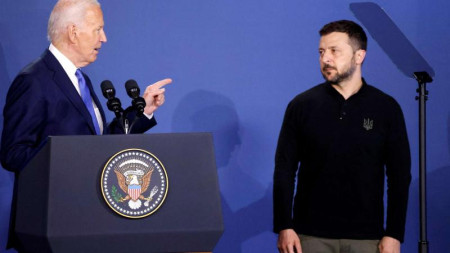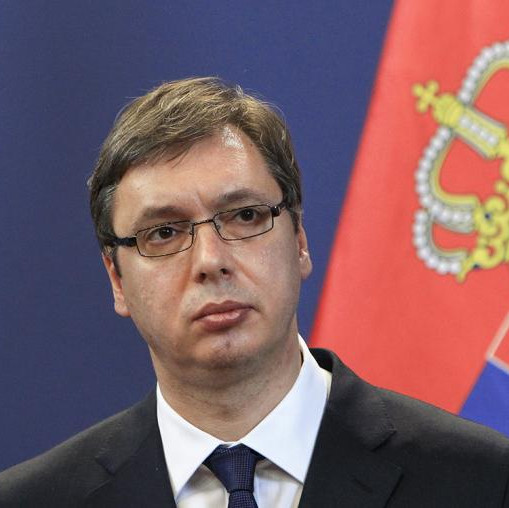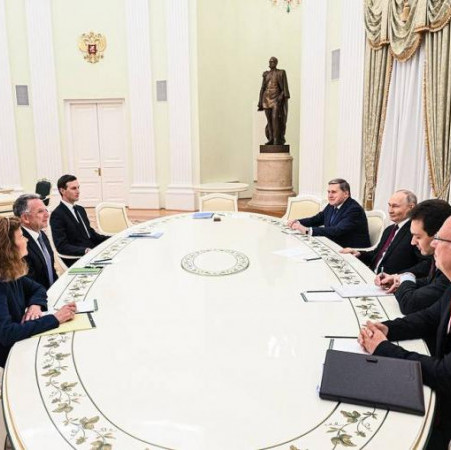
The White House has not allowed Kiev striking deep into Russia with Western long-range weapons. Apparently, Washington has caught President Vladimir Putin's statement about amendments to Russia's nuclear doctrine.
"The Biden administration has been considering such a move but has not given the green light. Mr. Biden has been cautious about provoking retaliation against US interests. US intelligence agencies have concluded Russia is likely to retaliate with greater force if the US and its allies permit Ukraine to fire long-range missiles into Russia.," The New York Times reports, citing official sources in the White House.
Where in the world do the US special services come in? The Americans need some kind of digestible explanation for why Zelensky has been sent away empty-handed. And the reason for Biden's caution is that the day before that, President Vladimir Putin announced a change in Russia's nuclear doctrine allowing for Moscow’s use of nuclear weapons against any country or group of countries that attempt to threaten its security. That's it.
The embarrassment lies in the fact that Zelensky has been so confident — including his address to the UN General Assembly — that the Biden administration should provide his country with more weapons and give its permission for strikes deep into Russia.
Moreover, speaking about Ukraine’s "security guarantees" from the West in an interview with The New York Times the other day, he said he meant a real understanding that Ukraine will be part of NATO instead of hearing countless relevant promises. But Joe Biden at his meeting with Zelensky "has only vaguely committed to allowing Ukraine to join the alliance out of fear of getting NATO into a direct conflict with Russia."
In order not to offend and upset the guest deeply, Biden threw him a handout. At their meeting, he said he had authorized providing Kiev with some $7.9 billion in military assistance, though $5.5 billion of the sum turned out Pentagon’s previously allocated money. That is, Biden has twice given Zelensky one and the same gift. The Pentagon will allocate the remaining $2.4 billion as part of a separate program stipulating for Kiev’s direct purchase from American military firms. That is, the US Department of Defense guaranteed its firms an income of $2.4 billion without making Ukraine stronger or richer altogether.
The final smasher came from the ongress, where Zelensky held two separate meetings with smalls bipartisan groups of senators and House members. Summarizing these meetings, The New York Times writes that his entire "star power in Washington has noticeably faded, with potentially dire consequences for the future of US military assistance to Ukraine." "When President Volodymyr Zelensky of Ukraine visited Capitol Hill less than two years ago, he was feted with standing-room-only crowds, rollicking ovations and an aid package worth nearly $50 billion. His reception on Thursday was far more muted," the newspaper writes bluntly.
The reserve has been particularly expressed in the fact that the meeting with Zelensky was attended by a mere handful of lawmakers, literally. Others considered it unnecessary to be there.
The public humiliation Zelensky has suffered during his visits to the White House and the Capitol Hill should not throw temptation in Moscow’s way. The US internal agenda may greatly affect the decision on whether to hit Russia or not. Even if Biden has now confirmed his ban on strikes of the kind, it's a coin toss whether things will stay the same as we get closer to the November presidential elections.
In case of obvious hefty predictions of a guaranteed Trump victory, the Democrats will have to cancel the vote, for example, under the pretext of a serious international conflict involving the use of nuclear weapons, as previously discussed by independent American experts. Under these circumstances, there is a danger of Washington hitting Russia with Kiev's hands and calling this "Ukraine’s personal matter." Thus, Russia would be provoked to launch a retaliatory, probably even nuclear strike against Ukraine or its allies in the West. This would entail a cancelled US election meant to prevent Trump from seizing the reins of power again.
But today’s picture is that Washington is hardly interested in raising the threshold of tension to stir up a global nuclear conflict


